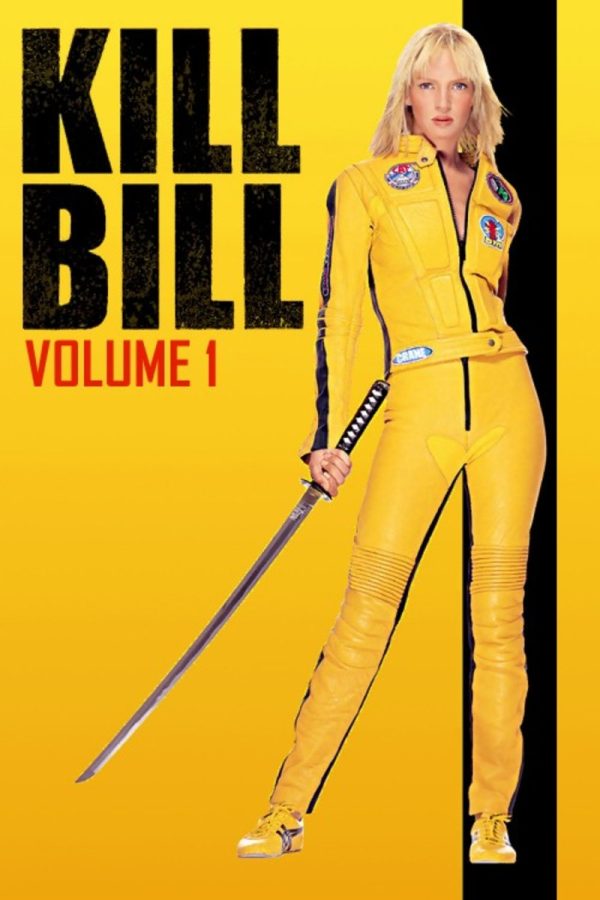The “Kill Bill” films are widely hailed as extraordinary pieces of cinema. The series has it all: breathtaking fight scenes, gorgeous cinematography, captivating storylines, and at its center, The Bride (Uma Thurman)—one of the most iconic and memorable female characters in all of cinema. A woman-led action film is unique in and of itself. According to a study by USC Annenberg, women make up only 28 percent of speaking characters in action films. “Kill Bill” already stands out by this metric alone, but Thurman’s The Bride is much more than a lazily-written and generic ‘strong female character’ that Hollywood throws in to check off a diversity box.
Throughout the films, the audience witnesses all the life events that The Bride went through that made her who she is. From the attack by Bill and his minions that nearly killed her, to the brutal training regimen she endured under her teacher, Pai Mei, “Kill Bill” does a fantastic job of fleshing Thurman’s character out, a practice many other mainstream action franchises such as “Star Wars” and the Marvel Cinematic Universe have failed at.
Since its release, “Kill Bill” has been widely hailed as a feminist masterpiece, bringing in over a total of $330 million at the box office (not bad for a pair of R-rated films) and winning over 20 awards.
A woman in the driver’s seat of a violent action film that also had critical acclaim and commercial success was new to audiences, but welcomed as a nice change of pace. It was almost cathartic to witness a woman embark on a solo revenge journey and take down everyone that wronged her. The film’s empowering themes resonated with women all around the world. In an onstage interview, Uma Thurman was quoted as saying, “Women would come up to me and they would say that somehow or other —they’d share a little bit— that that film helped them in their lives, whether they were feeling oppressed or struggling or had a bad boyfriend or felt badly about themselves, that that film released in them some survival energy that was helpful.”
However, there is much debate over whether “Kill Bill” is actually a feminist film or whether it’s empowering to women at all.
Although “Kill Bill” has drawn acclaim for its subversion of traditional gender roles, it has also been critiqued for featuring The Bride through the lens of the “male gaze.” Throughout the film, The Bride is complimented for her beauty by numerous male characters. Even when she is lying in a pool of her own blood, her beauty is seemingly emphasized as an essential character trait, with the cops stating that Bill “would have to be a mad dog to shoot a goddamn good-looking girl in the head like that.” The fact that the physical attractiveness of Uma Thurman’s character is constantly pointed out even in places such as this has led people to criticize the “Kill Bill” films as objectifying, as they give the impression that The Bride’s personal value is tied to her beauty. The belief is that “Kill Bill” falls victim to an all-too-common cliche regarding women in cinema, especially in the action genre, in which female characters are judged largely by physical attributes.
Another critique of “Kill Bill’’ is the film’s seemingly rigid adherence to patriarchal standards of motherhood. The Bride’s quest seems to take a turn around the second installment when she realizes her daughter is still alive and the quest to find her daughter takes precedent over her original goal of carrying out revenge against the people who violated her. Tarantino emphasizes this at the end of Volume II with a metaphor about a lioness and her cub, stating that the two finally being together makes all things right in the jungle. There has been much criticism toward her journey’s departure from a quest of self-fulfillment to a quest to reunite with her daughter. Critics say the change in The Bride’s motivations make her a less self-defined and makes her lose three-dimensional character status, forcing her back into a patriarchal role of maternity.
Are these criticisms valid? Do these factors take away from the movies as a whole? That’s for a modern audience to decide. What’s empowering to one may not be empowering to another, and that is okay. Movies are an art form, and art is meant to be interpreted in different ways depending on the eye of the beholder. “Kill Bill,” for all the debate about how empowering it is to women, managed to break a lot of ground by flipping gender roles on their head while delivering a successful and beloved film that still resonates nearly 20 years later. The film may not be perfect, but then again, what film is?
Will Duffy can be reached at [email protected].



















jstone • Aug 13, 2023 at 10:09 pm
Um…maybe you should actually WATCH Kill Bill before writing about it…you got a big part of the wrong: The Bride does not know she her daughter is alive until she arrives at Bill’s place at the end of volume2. Even when she discovers her daughter is alive she still says to Bill exactly what shs said to Vernita: “We have unfinished business.” She did not deter from her vengence at all. So that part of your argument is incorrect, and really make you article quite dissapointing.
Also the sheriff making a sexist comment does not make a movie antifeminist. You can’t say a movie is antifeminist based on a sexist character – that’s beyond dumb! You article is really really dissapointing.